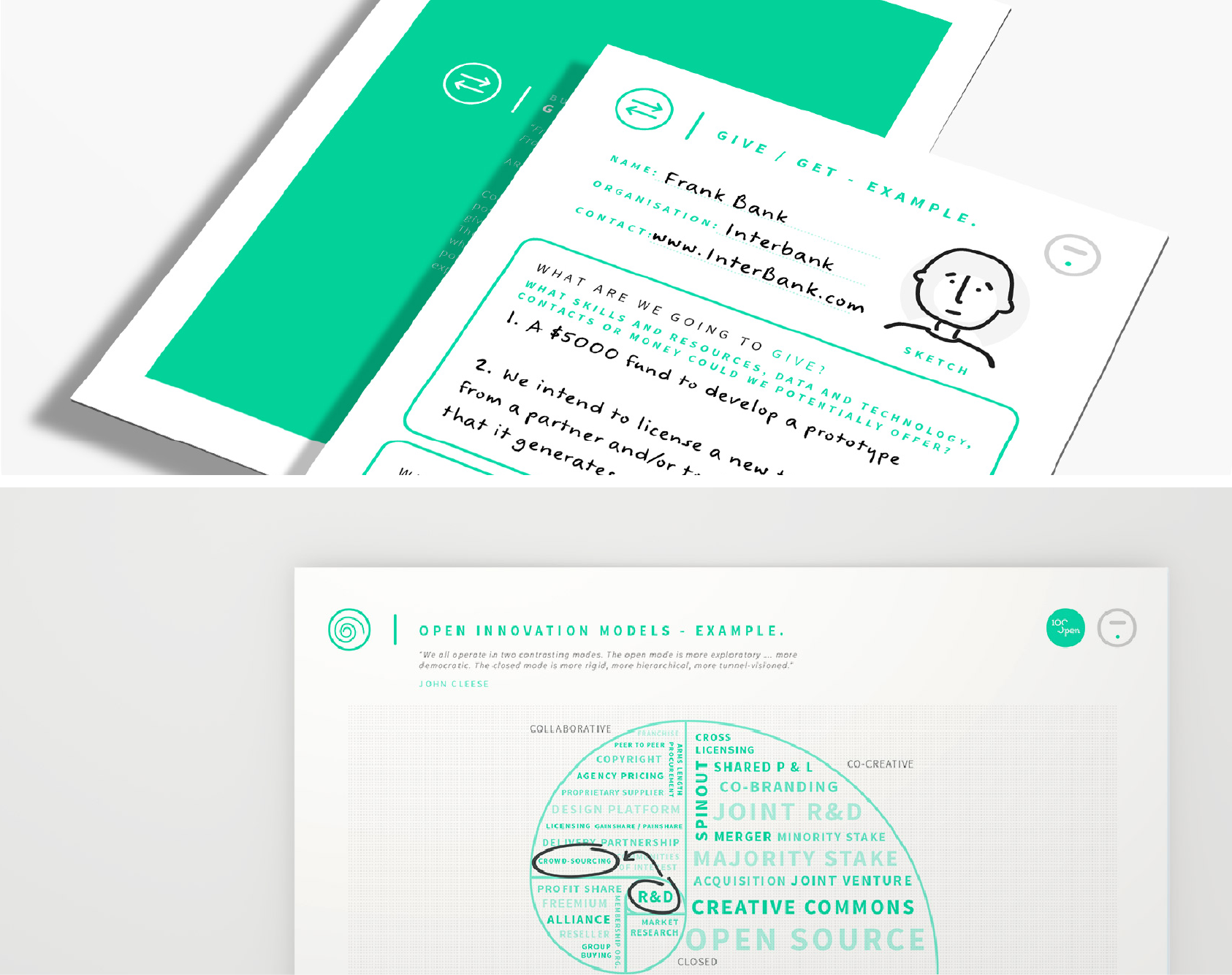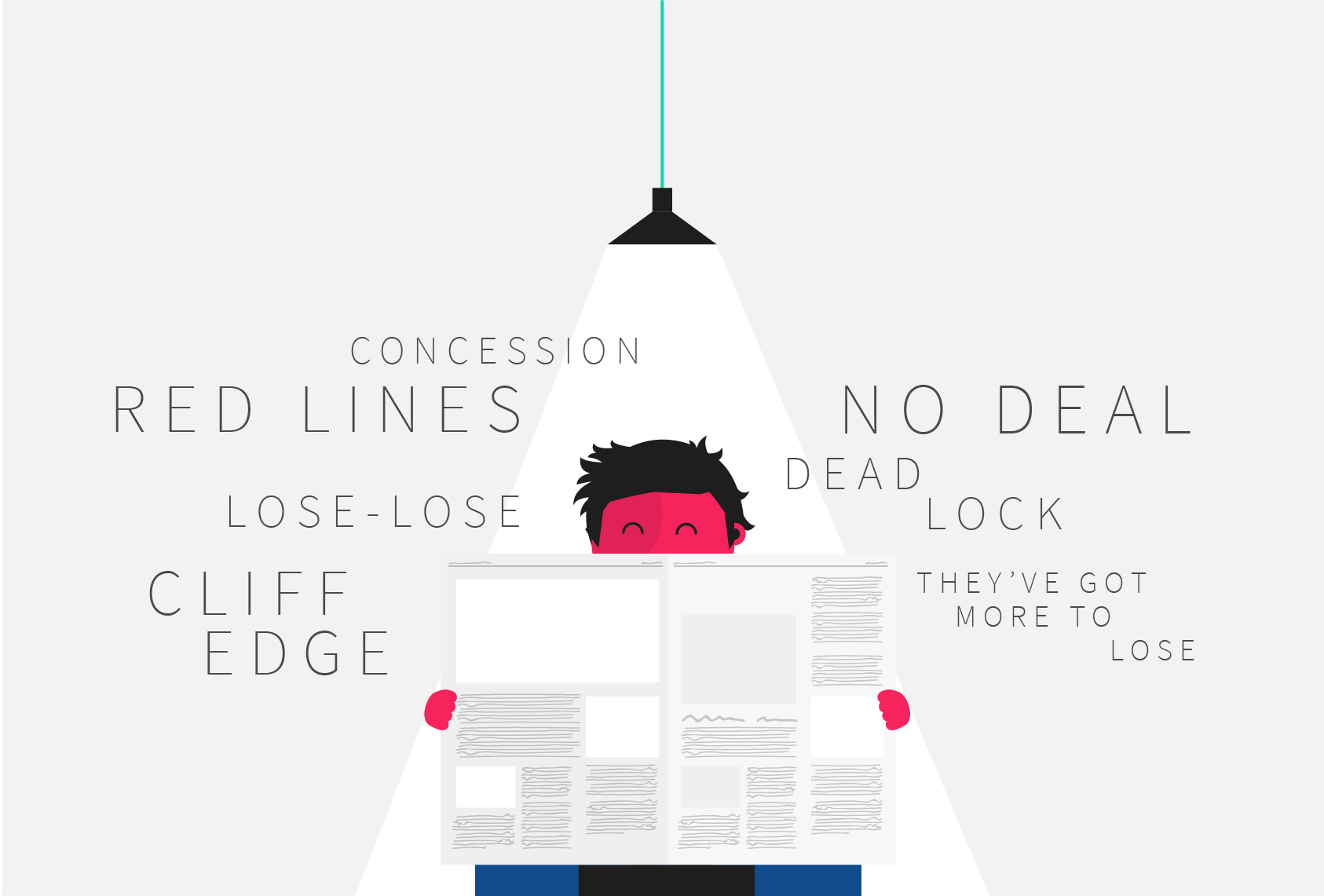Negotiation.
Use Business Empathy.
There is a lot of talk about negotiation in the media currently. Much of it seems somewhat macho and much of it from people with little direct experience of contemporary business practice. Here’s a look at the lexicon that we’re all reading a lot at the moment.
This adds up to a form of aggressive negotiation that is more akin to warfare, employing brinkmanship as first resort when it might be more effectively deployed as a last resort.
At 100%Open we’ve become adept at negotiating between the ‘suits’ and the ‘sneakers’. We call this sort of thinking Business Empathy. When large and small companies team up to innovate it’s potentially beneficial to both, but not necessarily a level playing field when it comes to negotiation. Large organisations can sometimes overpower start-ups because of their better legal resource and negotiation expertise. If open innovation is ‘Innovating with partners by sharing the risks and the rewards’ it’s fair to say that large organisations are happy to minimise risk but often slower to share the rewards.

Tools for Collaborative Negotiation
We try to overcome this imbalance with specific tools from our kit. The first is Give|Get. This in informal start to negotiations: collaborative innovation is only possible when what each partner gives is balanced by what each gets. The Give|Get exercise helps us define what the business offer will be to potential partners and what each will expect in return. It’s a great idea to sit down with a potential partner early in the relationship and fill in the cards together. If you feel really confident, fill them in from the other’s point of view first and compare notes.

The second tool is Open Innovation Models. This tool is for further refining the nature of a partnership. We help partners use it to select a collaborative business model that defines the role of each partner in a relationship that is either cooperative, collaborative or co-creative. In this way we can scope out potentially win-win models without engaging combative lawyers or price-focused procurement teams too early in the process. It is this first step that determines whether there is likely value in the partnership to pursue and enables a more realistic negotiation based on genuine potential.
Business Empathy
None of this involves brinkmanship or threatening ‘lose:lose’ scenarios. The secret to successful negotiation is what we call Business Empathy. This sounds like a contradiction in terms but involves developing an appreciation of the other party’s aspirations, goals and dreams. We believe it’s better to connect at this level, establishing an emotional business case for collaboration, than to use commercial muscle or other strong-arm tactics to gain advantage. After all, it is a good idea to develop a reputation as a fair partner if your aim is to attract the best talent from around the globe to help you grow.
David Simoes-Brown
